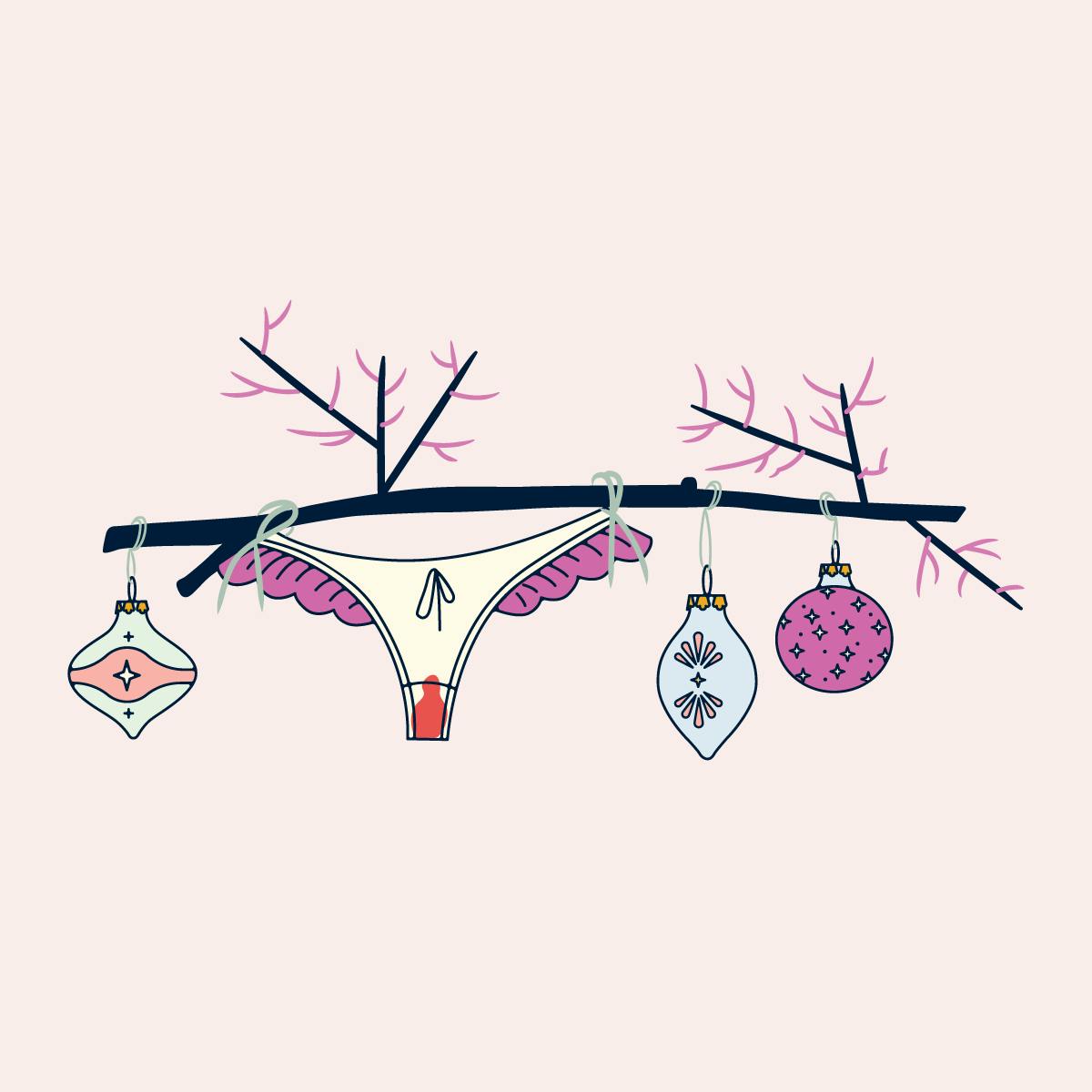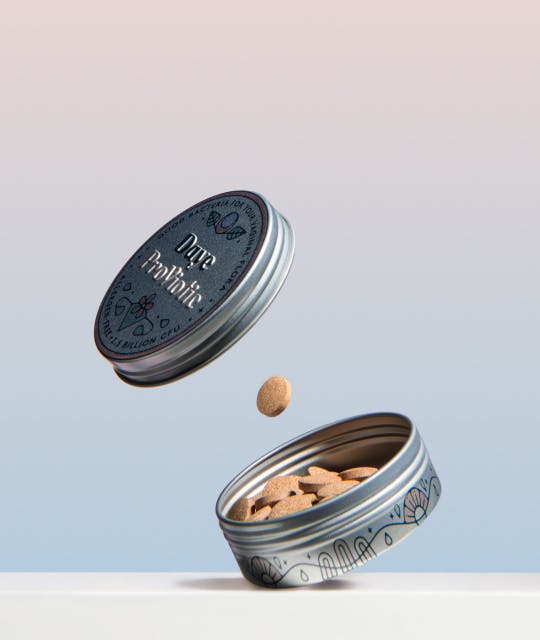Table of contents
1. Your Holiday Period Rundown
2. Cycles Stay Consistent (Even When Life Doesn’t)
3. PMDD Doesn’t Care About Celebrations
4. Energy Levels Take A Holiday
5. Pain Is An Uninvited Guest
6. The Holiday Mood Rollercoaster
7. Sex & Birth Control Take A Backseat
8. PMS & Stress Peak In Early December
9. Tracking Your Cycle: A Gift To Yourself
Written by Eleanor Riches
Medically reviewed by Sarah Montagu (RN DFSRH, BSc)
Illustrated by Maria Papazova
The holiday season looks different for everyone. For some, it’s all about festive gatherings and jam-packed schedules; for others, it’s time to slow down and recharge. It can be joyful, chaotic, reflective - or a mix of everything. No matter how (or if!) you celebrate, one thing’s certain: periods don’t check the calendar.
While traditions vary across cultures, periods are universal. Throwing your cycle into the holiday mix can leave you with a lot to juggle, especially if you experience PMS symptoms or have Premenstrual Dysphoric Disorder (PMDD). That’s why we’ve teamed up with Clue to dive into the data and explore how periods fit into celebrations of all kinds.
Your Holiday Period Rundown
Based on anonymous, aggregated Clue data we unpack how this time of year impacts your health, habits and happiness - plus, simple tips to help your holiday season flow more smoothly.
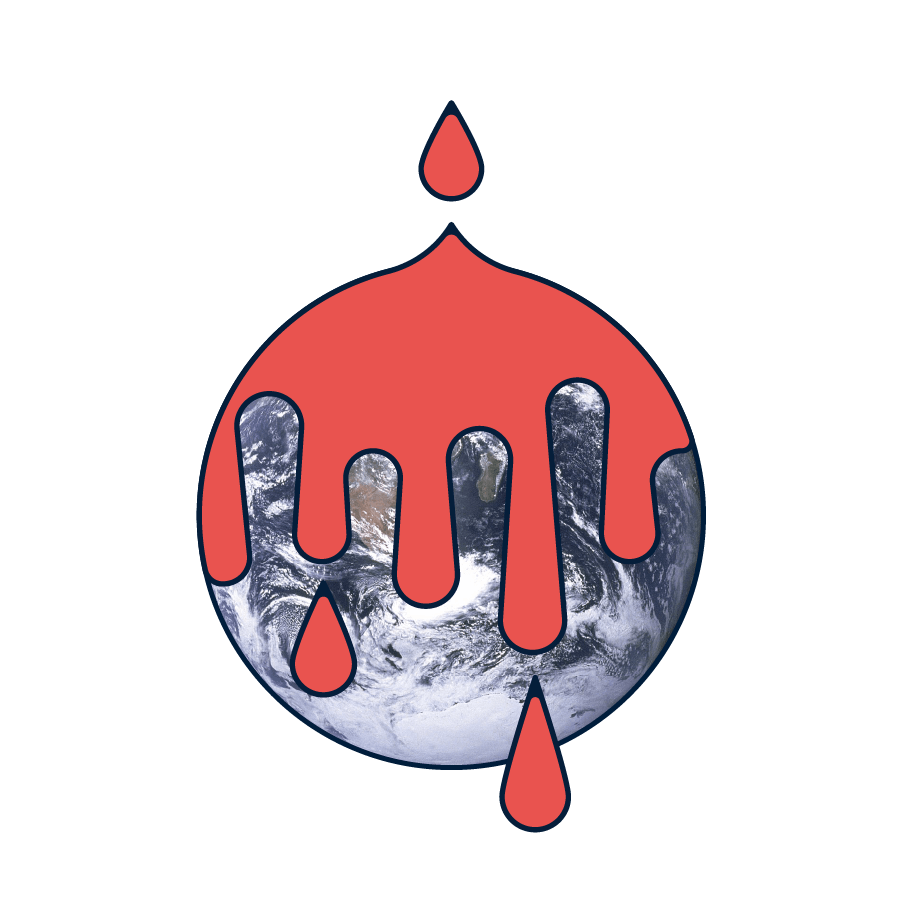
Global Trends:
- Cycle consistency: your cycle length isn’t likely to change with the seasons.
- PMDD pressure: emotional symptoms could hit harder thanks to festive stress.
- Less sex: holiday chaos saw 6% less sex reported, with 10% more ‘no sex’ days.
- PMS peaks: tracked symptoms hit an annual high on December 4th.
In the UK & US:
- Let it flow: 1 in 5 of us will start our periods between 23 December and NYE.
- Birth control slip-ups: December had the highest rate of missed or late pills tracked.
- High stress: The first week of December is the perfect stress storm for end-of-year deadlines and holiday prep.
Here’s a closer look at the data insights, patterns and some practical tips to keep your menstrual cycle in mind this holiday season.
Cycles Stay Consistent (Even When Life Doesn’t)

Let’s start with some good news: your cycle length isn’t fazed by the chaos of the holidays.
Although every individual has a unique cycle. Clue’s data shows the average cycle length holds steady at 30 days, regardless of the season. Even though the holidays might feel overwhelming at times, it’s reassuring to know your body can keep its rhythm. And while your cycle tends to be as reliable as that internal compass, life's holiday chaos can occasionally send it on a brief detour. During this festive season, the stress of juggling work, travel, and family may temporarily influence your sex hormone balance, which can lead to stronger PMS symptoms, increased anxiety, or even missed periods. These shifts are usually as temporary as holiday decorations, but if you notice persistent changes, checking in with a healthcare provider is your best next step.
Tip: Use this predictability to your advantage. Tracking your period means you can stock up on essentials, plan downtime and navigate festivities with a bit more ease.
PMDD Doesn’t Care About Celebrations
If you have PMDD, the holidays can feel especially challenging. PMDD (Premenstrual Dysphoric Disorder) is a severe emotional reaction to hormonal changes that affects 5-7% of people with cycles.
Clue’s data reveals that the number one most often used tracking category of people with PMDD is ‘feelings’ while Clue users in general use the app to track their cycle. Hormonal changes during the premenstrual phase (the time leading up to your period) can trigger PMDD symptoms like depression, irritability and stress.
For those with PMDD, symptoms can be so disruptive that they might need to miss work, skip plans or hit pause completely. During the holiday season, when we’re extra busy and tired, PMDD symptoms can make it more difficult to keep up, while pressure to socialise adds to the stress. =
Tip: Be proactive in tracking your cycle and anticipating PMDD symptoms. This could mean scheduling downtime or seeking support. And remember: taking the time out you need is always ok.
Energy Levels Take A Holiday
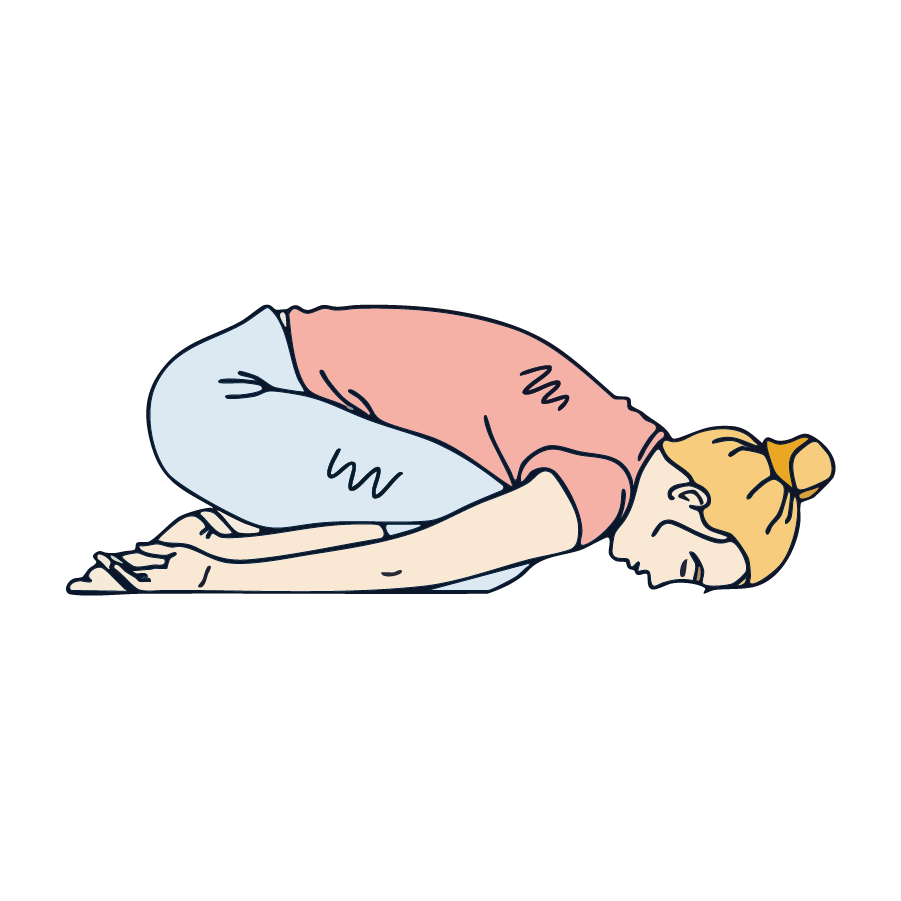
Feeling wiped out? You’re not alone. Among Clue users who kept track of their energy levels during the holiday season, tired was tracked in 34% of cases and exhausted was tracked in 17% of cases. Among users with a PMDD diagnosis, in 39% of the cases tired was tracked and exhausted in 22%
As end-of-year deadlines loom and the holidays begin to disrupt normal routines, it’s difficult to stay on track. Late nights, social obligations and endless to-do lists can make it feel like we’re running on empty. For people with PMDD, hormonal sensitivity can makes energy dips feel even more extreme, especially during the luteal phase.
Tip: Try to stick to a consistent sleep routine wherever possible and carve out small moments to recharge. A 20-minute nap, a walk outside, or even some light stretching could make a big difference.
Pain Is An Uninvited Guest
Globally, period cramps top the physical symptom chart - being the most tracked type of pain for both general users and users with PMDD. The second most tracked type of pain is breast tenderness, the third is headaches and the fourth is lower back pain.
Discomfort during the premenstrual phase is normal for many people. But the added stress of holiday prep and extra alcohol consumption can all increase inflammation, making it feel like a rougher ride.
Tip: Prep a self-care kit for those heavy flow days with comforts like herbal tea, heat packs and our CBD tampons, to help you manage pain on the go.
The Holiday Mood Rollercoaster

Among the general Clue users who kept track of their feelings, ‘mood swings’ were tracked most often. Following mood swings, we find “happy” in the top 2 and “sensitive” in the top 3 of most tracked feelings.
In the UK & US, feeling ‘argumentative’ increased by 8% in December - but so did feeling sociable (+14%) and supportive (+10%). The holidays are a time for big feelings. It can be a joy to connect with family and friends, but there’s also a whole lot of pressure linked to finances, social obligations, family dynamics and disrupted sleep. For those with PMDD, this contrast can feel even more difficult to deal with.
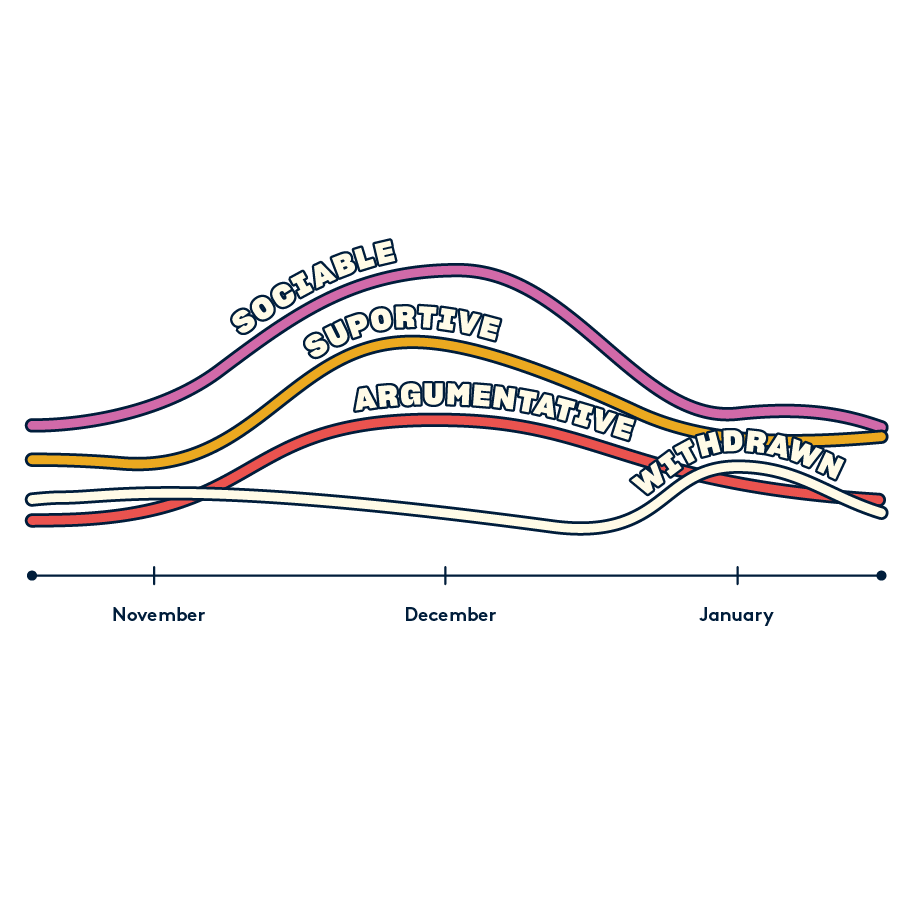
Tip: Remind yourself that it’s ok to feel a mix of emotions, we’re multidimensional beings! Practising some self-compassion and setting boundaries (like saying no to that extra invite) can help you navigate the season with more balance.
Sex & Birth Control Take A Backseat
The holidays might seem like a time for physical intimacy but Clue’s data suggests that may not be true for everyone. Tracked sexual activity for all users dropped by 6%, with ‘no sex’ days increasing by 10%.
Busy schedules, crowded houses and holiday exhaustion can all make intimate moments tricky. The stress of the season can also contribute to low libido, especially for those with PMDD.
Don’t forget about sex completely though: in the UK & US, December saw the highest rate of missed or late birth control pills tracked, with NYE and Christmas Day at the top of the list.
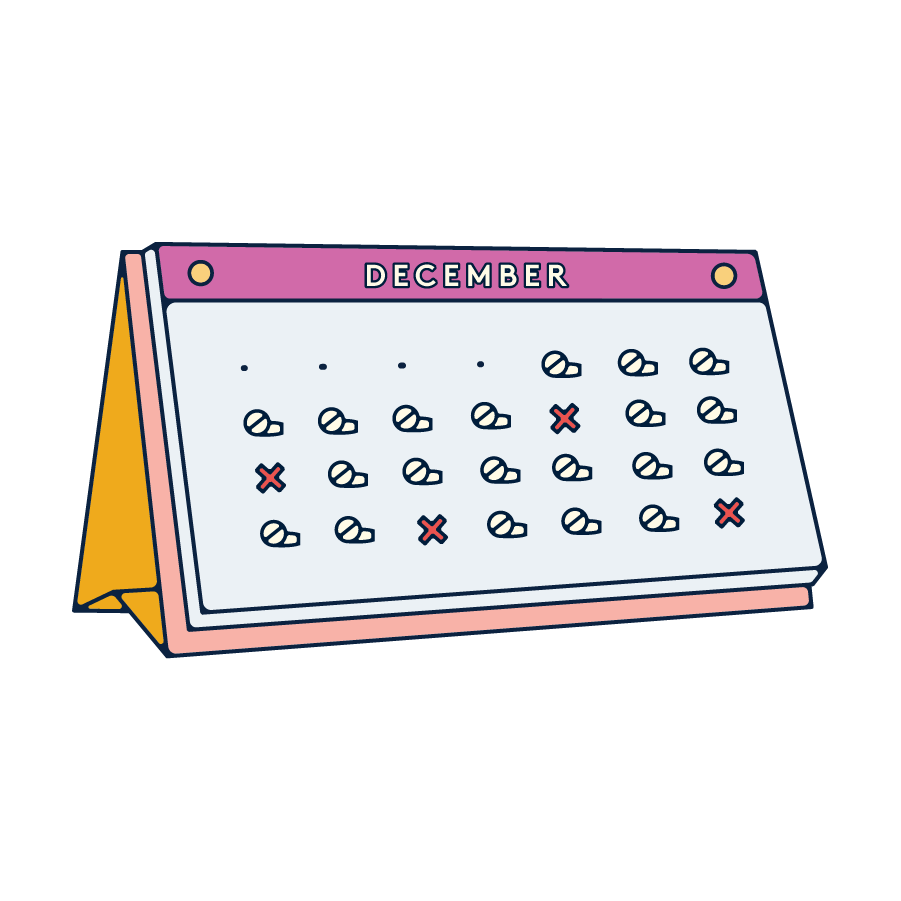
Tip: Focus on finding connection in other ways, like getting cosy for a movie or squeezing in an at-home date night. Intimacy isn’t all about sex and the holidays are the perfect time to get creative. P.S. Remember to set that birth control alarm, just in case! If you miss a pill, check this guide for combined pills and this guide for progestogen-only pills.
PMS & Stress Peak In Early December

Mark your calendars: December 4th was the most PMS-heavy day of the year. In the UK & US, stress levels also increase during December. End-of-year deadlines, holiday prep and hormonal shifts collide to create the perfect storm.
Tip: Knowing when your PMS symptoms are likely to peak can help you prepare. Plan to take it easy on those days and carve out time for rest and comfort amongst the chaos.
Tracking Your Cycle: A Gift To Yourself
Tracking your cycle is the key to understanding your body. It helps you spot patterns, predict symptoms and plan ahead - so you can prioritise yourself even during the busiest times.
However you choose to spend the holidays, remember: your health comes first. Whether that means saying no to an extra invite or scheduling time to unwind, small acts of self-care can make a big difference to how you enjoy celebrating this season.


